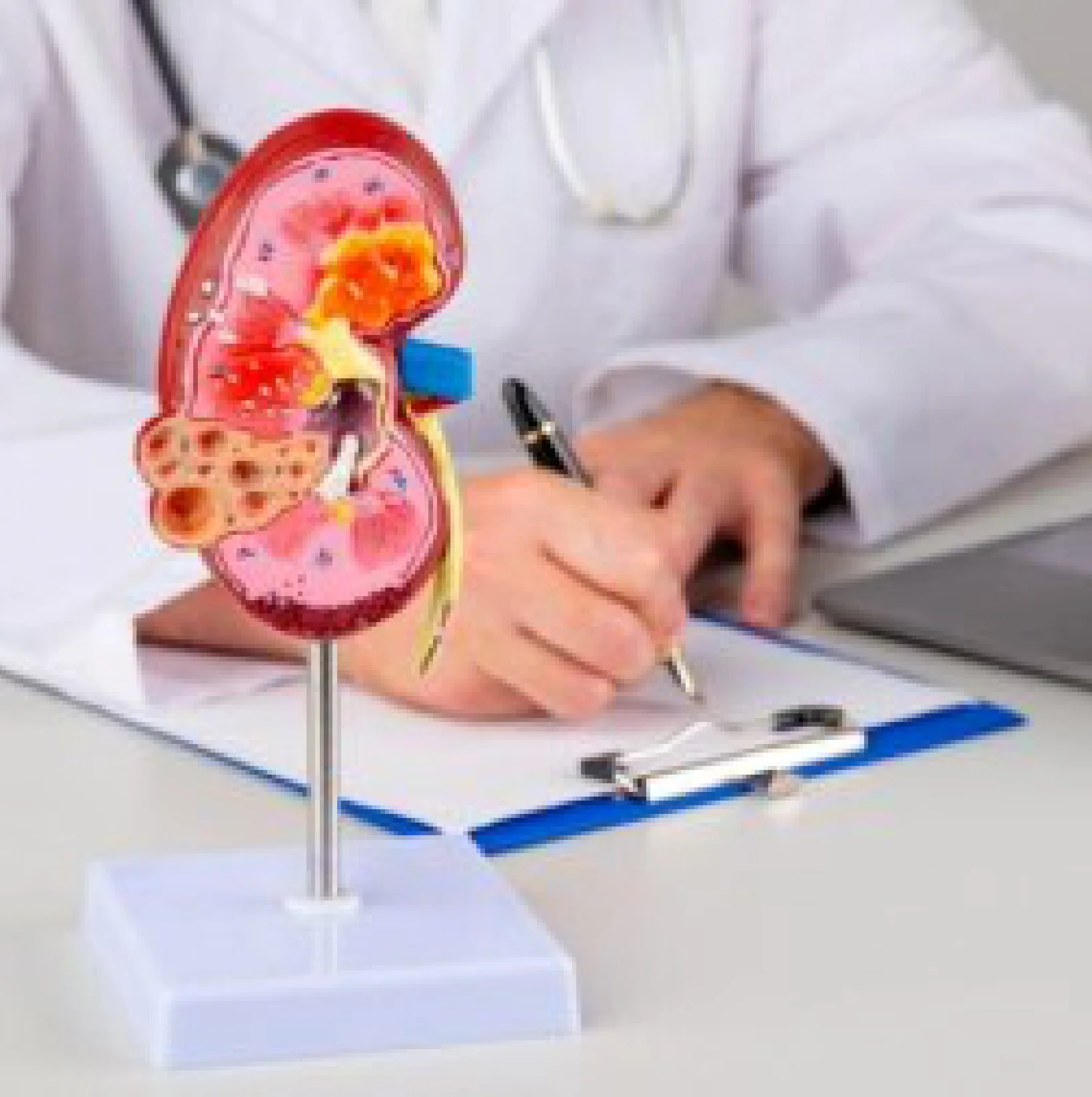
Department of Nephrology (Kidney Care)
Welcome To Gangasheel Hospital
What is AC on CKD ?
Chronic kidney disease, also called chronic renal failure, is associated with the gradual loss of kidney function. The kidneys filter waste products and excess water from the blood and excrete them in the urine. As chronic kidney disease progresses, dangerous levels of water, electrolytes, and waste products can build up in the body.
In the early stages of chronic kidney disease, there may be few signs or symptoms. People may not realize they have kidney disease until the disease is advanced.
Treatment of chronic kidney disease focuses on slowing the progression of kidney damage, usually by controlling the cause. However, controlling the cause does not stop progression of kidney damage. Chronic kidney disease can progress to end-stage renal disease, which is fatal without artificial filtration (dialysis) or a kidney transplant.
Chronic kidney disease, also called chronic renal failure, is associated with the gradual loss of kidney function. The kidneys filter waste products and excess water from the blood and excrete them in the urine. As chronic kidney disease progresses, dangerous levels of water, electrolytes, and waste products can build up in the body.
In the early stages of chronic kidney disease, there may be few signs or symptoms. People may not realize they have kidney disease until the disease is advanced.
Treatment of chronic kidney disease focuses on slowing the progression of kidney damage, usually by controlling the cause. However, controlling the cause does not stop progression of kidney damage. Chronic kidney disease can progress to end-stage renal disease, which is fatal without artificial filtration (dialysis) or a kidney transplant.
The signs and symptoms of chronic kidney disease develop over time as kidney damage progresses slowly. Loss of kidney function can cause fluid and waste buildup, or electrolyte problems.
- cramps
- swelling of the feet and ankles
- dry, itchy skin
- high blood pressure that is difficult to control (hypertension)
- shortness of breath, when fluid collects in the lungs
- chest pain, when fluid collects inside the heart.
Chronic kidney disease occurs when a disease or condition affects kidney function and worsens kidney damage over months or years.
Diseases and conditions that cause chronic kidney disease include:-
- Diabetes type 1 or type 2
- Hypertension
- Glomerulonephritis kidney (glomeruli)
- Interstitial nephritis (in-tur- STISH-ul nuh-FRY-tis), inflammation of renal tubules and surrounding structures- nuh-FRY-tis
To reduce your risk of kidney disease:-
- Follow directions on over-the-counter medications. When using over-the-counter pain relievers such as aspirin, ibuprofen (Advil, Motrin IB, etc.), acetaminophen (Tylenol, etc.), follow the directions on the package. Excessive use of pain relievers over a long period of time can lead to kidney damage.
- Maintain a healthy weight. If you are at a healthy weight, maintain it by being physically active most days of the week. If you need to lose weight, talk to your doctor about healthy weight loss strategies.
- No Smoking. Smoking can damage the kidneys and exacerbate existing kidney damage. If you smoke, talk to your doctor about smoking cessation strategies. Support groups, counseling, and medication can help quit smoking.
- Manage your health with the help of your doctor. If you have any diseases or conditions that increase your risk of kidney disease, work with your doctor to keep them under control. Talk to your doctor about tests to look for signs of kidney damage.
Many medications may need to be taken to treat the symptoms and conditions caused by CKD.
Additionally, depending on the stage of CKD, you may need to try one of the following lifestyle changes or treatments:-
- Diet Maintaining a proper diet is essential in treating renal failure. Eating too much protein puts a strain on the kidneys, so limiting the amount of protein in the diet can slow the progression of the condition. , general health, and exercise regimen. You should consult your doctor or nutritionist to determine the optimal protein source and amount. A person should carefully adjust their salt intake to control high blood pressure. Potassium and phosphorus may be dangerous for his CKD patient and may need to be restricted.
- Learn about the best foods for healthy kidneys.
- Nonsteroidal Anti-Inflammatory Drugs
- People with chronic kidney disease should avoid nonsteroidal anti-inflammatory drugs (NSAIDs) such as ibuprofen, certain antibiotics, and dyes on CT scans. This is because the kidneys can metabolize these drugs, increasing the risk of side effects.
Yes, Chronic Kidney Diseases Treatment is available in Bareilly at Gangasheel Hospital by the team of expert Nephrologists in the city.
